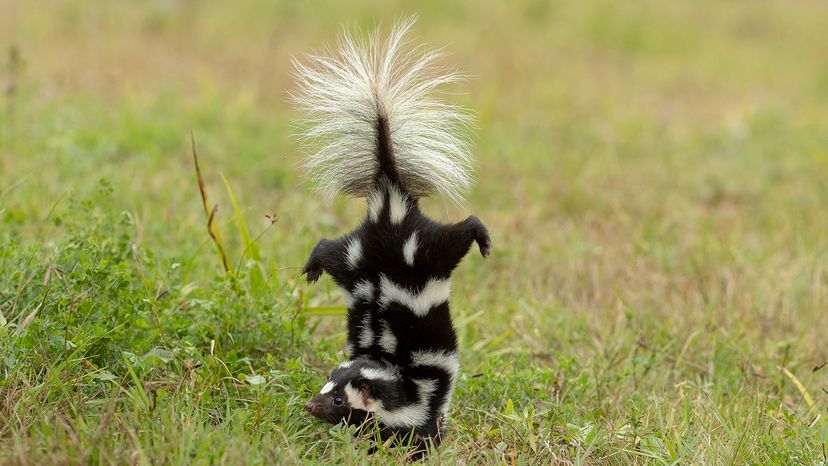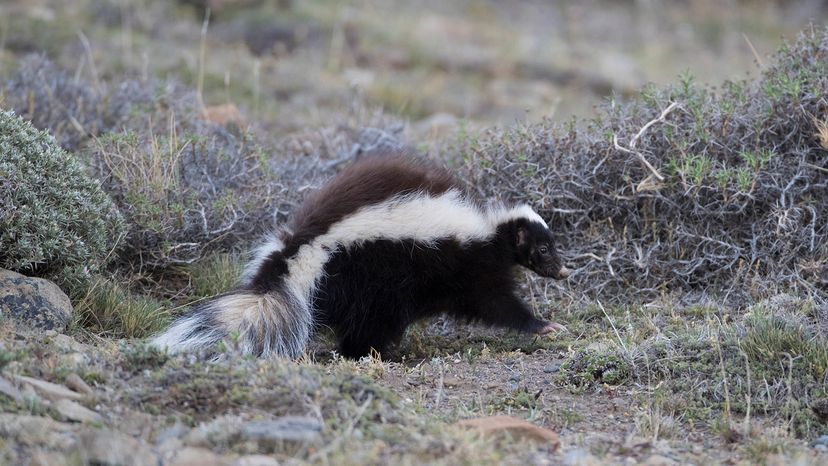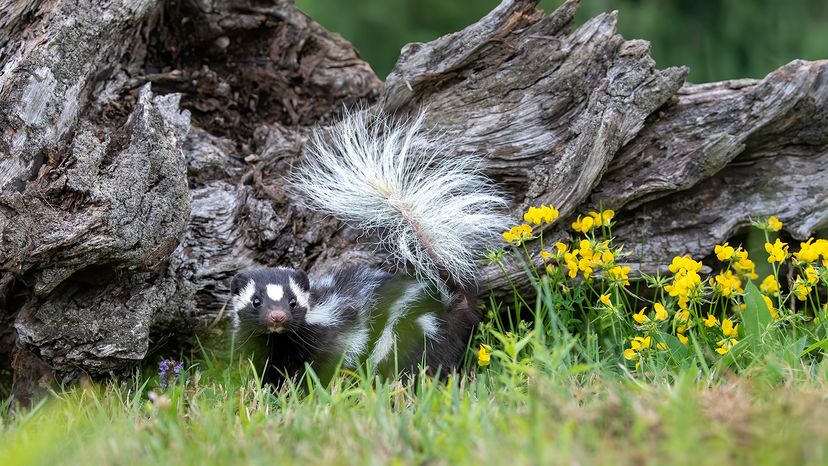
If you're catching whiffs of something funky near your porch, you might be wondering, "What do skunks eat?" These black-and-white foragers are best known for their defensive skunk spray, but their feeding habits are just as distinctive.
Turns out, skunks eat a little bit of everything, making them true opportunistic feeders.
Advertisement
Whether they’re foraging in forests or rooting through garbage cans in urban areas, skunks have a varied diet that helps them adapt to many environments. Their robust digestive system allows them to handle all sorts of food sources — and that includes stuff you'd never expect.

